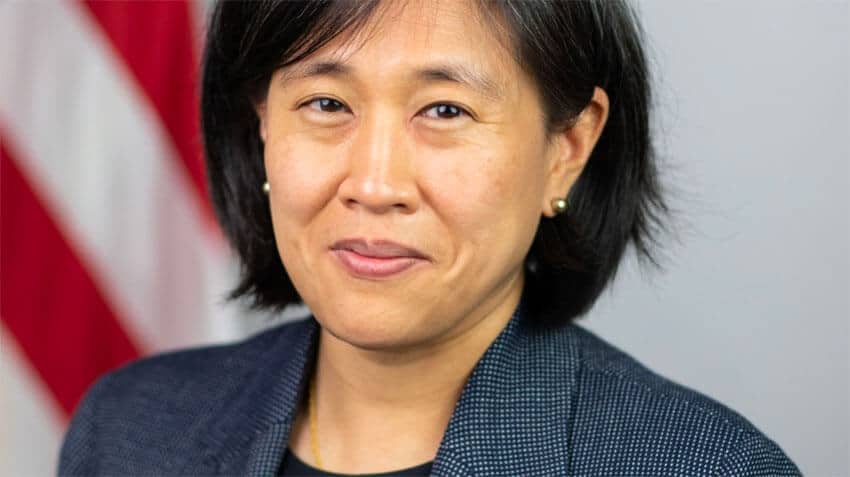The United States has challenged energy sector policies in Mexico that favor the Federal Electricity Commission (CFE) and the state oil company Pemex at the expense of U.S. firms in violation of the North American free trade agreement.
The U.S. Trade Representative on Wednesday requested dispute settlement consultations with Mexico under the United States-Mexico-Canada Agreement (USMCA).
“We have repeatedly expressed serious concerns about a series of changes in Mexico’s energy policies and their consistency with Mexico’s commitments under the USMCA,” said Ambassador Katherine Tai. “These policy changes impact U.S. economic interests in multiple sectors and disincentivize investment by clean-energy suppliers and by companies that seek to purchase clean, reliable energy.
“We have tried to work constructively with the Mexican government to address these concerns, but, unfortunately, U.S. companies continue to face unfair treatment in Mexico. We will seek to work with the Mexican government through these consultations to resolve these concerns to advance North American competitiveness.”
Determined to “rescue” the CFE and Pemex from what President López Obrador describes as years of neglect and mismanagement by past governments, the federal government has changed or sought to change a range of energy sector laws.
One controversial law – the Electricity Industry Law (LIE) – gives power generated by the CFE priority on the national grid over that produced by private and renewable energy companies. The law was passed by Congress in March 2021 and upheld by the Supreme Court in April.
In a letter sent to Mexican Economy Minister Tatiana Clouthier earlier this year, the trade official said that Mexico’s energy policies placed over US $10 billion in U.S. investment in Mexico at great risk.
The USTR also accused Mexico of “delays, denials, and revocations” of permits that affect U.S. companies’ capacity to operate in Mexico’s energy sector. United States officials, including Ambassador Ken Salazar, have already spoken out about the problems U.S. companies are having to secure the permits they need to operate without encumbrance in Mexico.

The USTR noted that USMCA rules stipulate that the request for dispute settlement consultations must be acted on within 30 days unless the two parties decide otherwise. If the United States’ concerns are not resolved within 75 days of its request, the U.S. may seek the establishment of a dispute panel.
The U.S. request comes the week after President López Obrador met with U.S. President Joe Biden in the White House. A joint statement highlighted the two countries’ “broad and deep cooperation” and recognition of “the importance of investing in and promoting renewable sources of energy.”
López Obrador has dismissed suggestions that the United States is concerned about Mexico’s energy policies, insisting that U.S. and Canadian energy interests are “very satisfied, very pleased. There is no problem.”
At Wednesday morning’s press conference, the president played down the U.S. move and declared that nothing would come of the challenge, which he mocked by playing a popular song called Oh, How Scary.
The Mexican government could argue that its energy sector policies are not deterring investment, given that U.S. companies have committed to invest $40 billion here over the next two years. López Obrador cited that figure at the U.S.-Mexico CEO Dialogue in Washington last Wednesday and said last month that 17 U.S. energy companies had committed to invest in solar and wind projects in Mexico.
The president – a fierce critic of the 2014 energy reform that opened up the sector to private and foreign companies – says that his energy sector policies will keep costs down and make Mexico more self-sufficient.
Critics argue that electricity prices will actually go up while investor confidence is undermined and Mexico’s clean energy commitments are violated.
Although the United States government is unhappy with the way the energy sector has changed since López Obrador took office, the situation, from its perspective, could be even worse.
The U.S. was a vocal critic of a constitutional bill that would have overhauled the electricity market to favor the state-owned CFE and thus limited the participation of private and foreign energy companies, but it failed to attract the two-thirds support it needed to pass the lower house of Congress.
Mexico News Daily
